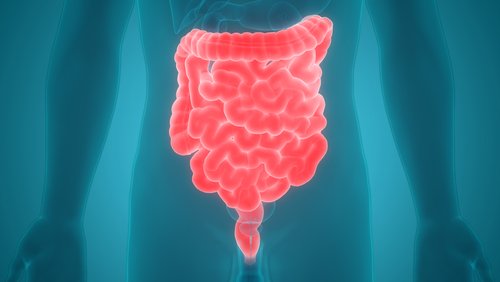People with inflammatory bowel disease (IBD) whose gut inflammation is driven by eosinophils — a type of white blood cells — are less likely to experience disease flares and require hospitalization compared with those whose inflammation is driven by other types of immune cells, a study reports.
The study, “Outcomes of inflammatory bowel disease in patients with eosinophil-predominant colonic inflammation,” was published in the journal BMJ Open Gastroenterology.
People with IBD, which includes both ulcerative colitis (UC) and Crohn’s Disease (CD), have higher levels of a type of immune cells called eosinophils in the gut. Eosinophils, produced in the bone marrow, are white blood cells that fight parasites and certain infections.
Some previous studies have suggested that activated eosinophils may release signaling molecules that activate other immune cells, further worsening gut inflammation. However, other studies have suggested that eosinophils may play a protective role.
Now, scientists at the University of New Mexico Health Sciences Center sought to investigate whether the presence of eosinophils could, in fact, be associated with gut inflammation. To learn more, the team analyzed intestinal biopsies of 142 IBD patients — 82 men and 60 women — who never received any treatment for the disease.
Biopsy analyses were performed by two pathologists and included counting the number of eosinophils as well assessing the degree of tissue inflammation.
Most patients (83%) were diagnosed with UC and were followed for a median period of three years. More than half (59%) were free of flares during follow-up, while 41% had flares that required at least one course of treatment with corticosteroids. Two-thirds (65%) of those who received corticosteroids required hospitalization.
The results of the biopsies revealed different patterns of inflammation. In 17% of the patients, inflammation was found to be mainly linked to eosinophils, while in one-third of the patients it seemed to be driven by other immune cells, called neutrophils. Neutrophils are white blood cells usually known for fighting infection or tissue injury in the body.
However, in half of the patients, inflammation appeared to be driven by both cell types, as the number of eosinophils and neutrophils found in the biopsy specimens were similar.
People with UC and CD had no differences in the number of eosinophils, and the presence of these cells was not linked to disease severity.
Moreover, no differences in eosinophil numbers were found between patients who had IBD flares (mean of 56.6 cells per field of view) compared with those who remained in remission (mean of 51.5 cells per field of view). The same was true for those who had been hospitalized and those who were not (mean of 49.2 versus 55 cells per field of view).
There was no difference in eosinophil counts between CD patients with fistulas — tunneling through the rectum, which can lead to infections that occur once or repeatedly — or who required bowel resection, or surgery to remove a portion of the intestine.
Individuals with neutrophil-predominant inflammation had a significant higher risk of experiencing disease flares (55%) compared with those with mixed (36%) and eosinophil-predominant inflammation (28%). Moreover, in general, patients with neutrophil-predominant inflammation had more than two times the risk of having disease flares.
Hospitalization rates also were higher among those with neutrophil-predominant inflammation (35%) compared with those whose is eosinophil-rich (19%).
Survival analysis revealed that patients with eosinophil-predominant inflammation had a higher flare-free survival rate compared with those with mixed and neutrophil-predominant inflammation.
Overall, “IBD patients with eosinophil-predominant inflammation phenotype [disease feature] might have reduced risk of disease flares and hospitalisation,” the researchers said.
However, “larger prospective studies to assess IBD outcomes in this subpopulation are warranted,” they added.

